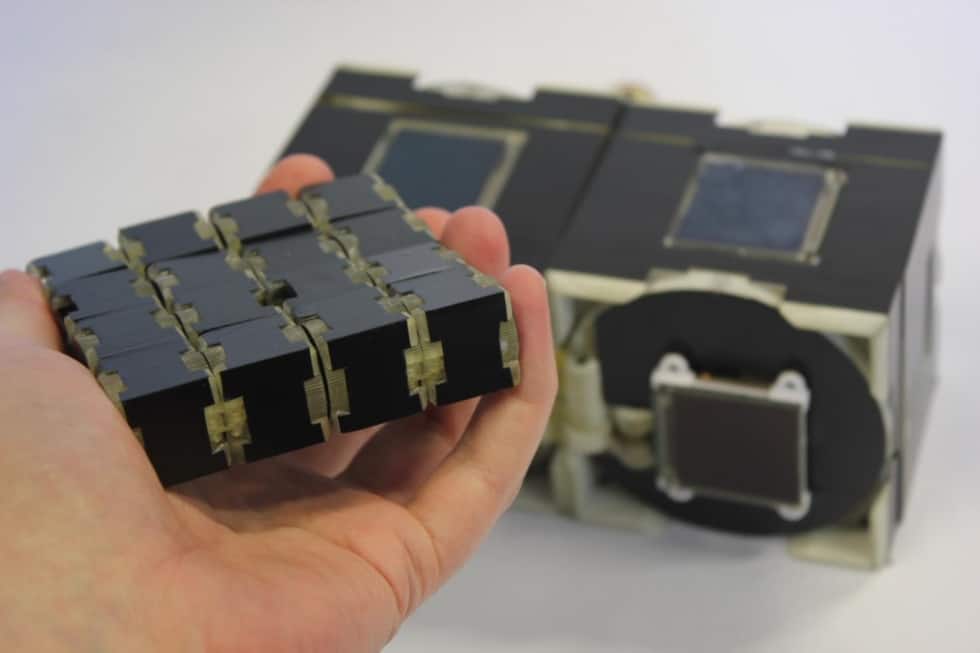Cubimorph, created by engineers at Bristol University, in collaboration with academics at the Universities of Purdue, Lancaster and Sussex, holds touchscreens on each of its six module faces and uses a hinge-mounted turntable mechanism to self-reconfigure in the user's hand. It can for instance, instantly transform itself from a phone into a games console.
Made out of a chain of cubes, the device is one of the latest developments in the emerging field of programmable matter - where interactive devices change shape to fit functionalities required by end-users. For instance, one example is a mobile phone that can transform into a console when a user launches a game.
There has been a growing interest toward achieving modular interactive devices in the human computer interaction (HCI) community, but so far existing devices consist of folding displays and barely reach high shape resolution.

Dr Anne Roudaut, lecturer from the University's Department of Computer Science and co-leader of the BIG (Bristol Interaction Group), said: "Cubimorph is the first step towards a real modular interactive device. Much work still needs to be achieved to put such devices in the end-user hands but we hope our work will create discussion between the human computer interaction and robotics communities that could be of benefit to one another other."
The project is being presented this week at one of the leading international forums for robotics researchers, ICRA 2016, in Stockholm, Sweden.




Red Bull makes hydrogen fuel cell play with AVL
Formula 1 is an anachronistic anomaly where its only cutting edge is in engine development. The rules prohibit any real innovation and there would be...